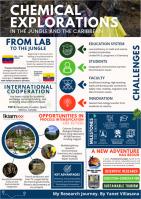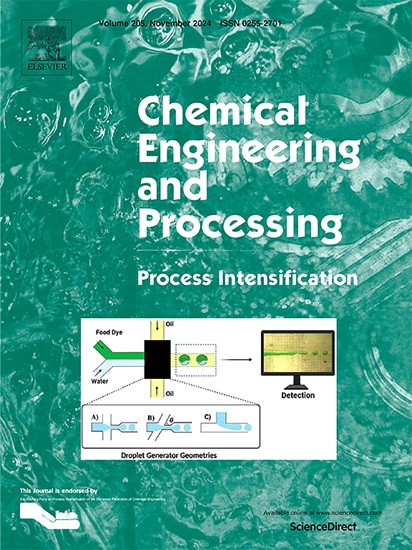Chemical explorations: Adventures of learning, teaching and research in the jungle and Caribbean
IF 3.8
3区 工程技术
Q3 ENERGY & FUELS
Chemical Engineering and Processing - Process Intensification
Pub Date : 2024-09-15
DOI:10.1016/j.cep.2024.109996
引用次数: 0
Abstract
Embarking on a career in a STEM field, especially in the chemical sciences, can be intimidating when you are the first in your family to pursue such a goal. This article reflects on personal experiences in teaching, learning, and conducting chemistry research in unique environments like the Amazon rainforest and the Caribbean. Beginning in Venezuela and leading to a professorship at Ikiam University in Ecuador, the journey was driven by a passion for science and environmental protection. Challenges due to Venezuela's socioeconomic crisis prompted a move abroad, where I focused on implementing process intensification strategies in the Ecuadorian Amazon to address environmental issues in remote areas. The article also discusses the educational and research challenges in these isolated regions, including barriers faced by indigenous students. Despite these difficulties, our team at Ikiam University has made significant progress in establishing research laboratories, developing graduate programs, and forming a research group focused on biomass conversion. Emphasizing knowledge transfer and collaboration with indigenous communities, the article highlights the importance of preserving ancestral knowledge while creating sustainable solutions for environmental conservation. It concludes by reflecting on the integration of scientific research, environmental education, and sustainable tourism to foster local community development and biodiversity preservation.

化学探索:丛林和加勒比地区的学习、教学和研究历险记
如果您是家族中第一个从事 STEM(科学、技术、工程和数学)领域工作的人,尤其是化学科学领域的工作,您可能会感到畏惧。本文回顾了个人在亚马逊雨林和加勒比海等独特环境中从事化学教学、学习和研究的经历。从委内瑞拉开始,到厄瓜多尔伊基亚姆大学担任教授,这段旅程是由对科学和环境保护的热情驱动的。委内瑞拉社会经济危机带来的挑战促使我移居国外,在那里,我重点在厄瓜多尔亚马逊地区实施过程强化战略,以解决偏远地区的环境问题。文章还讨论了这些偏远地区在教育和研究方面面临的挑战,包括土著学生面临的障碍。尽管存在这些困难,但我们在伊基亚姆大学的团队在建立研究实验室、开发研究生课程以及组建专注于生物质转化的研究小组方面取得了重大进展。文章强调了知识转让和与原住民社区的合作,强调了在为环境保护创造可持续解决方案的同时保护祖先知识的重要性。文章最后反思了如何将科学研究、环境教育和可持续旅游业结合起来,促进当地社区发展和生物多样性保护。
本文章由计算机程序翻译,如有差异,请以英文原文为准。
求助全文
约1分钟内获得全文
求助全文
来源期刊
CiteScore
7.80
自引率
9.30%
发文量
408
审稿时长
49 days
期刊介绍:
Chemical Engineering and Processing: Process Intensification is intended for practicing researchers in industry and academia, working in the field of Process Engineering and related to the subject of Process Intensification.Articles published in the Journal demonstrate how novel discoveries, developments and theories in the field of Process Engineering and in particular Process Intensification may be used for analysis and design of innovative equipment and processing methods with substantially improved sustainability, efficiency and environmental performance.

 求助内容:
求助内容: 应助结果提醒方式:
应助结果提醒方式:


